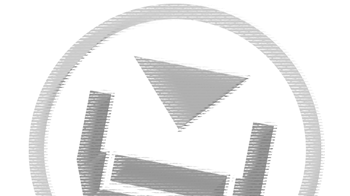Clutter vs. Collecting vs. Hoarding
Have a lot of stuff piled around you, and wondering, “Am I a hoarder?” Maybe you are, maybe you aren’t—perhaps you just have a lot of clutter, and lately it’s been getting out of control. Then again, you might point out that lots of people are collectors—and this doesn’t make them “hoarders.” Perhaps you are […]
Have a lot of stuff piled around you, and wondering, “Am I a hoarder?” Maybe you are, maybe you aren’t—perhaps you just have a lot of clutter, and lately it’s been getting out of control. Then again, you might point out that lots of people are collectors—and this doesn’t make them “hoarders.” Perhaps you are a collector. In fact, what is the difference between clutter vs. collecting vs. hoarding?
I have read up a fair bit on this topic while exploring psychological issues involved with decluttering and organizing your home or office. The lines between each of these is blurry, but I will attempt to convey my understanding of them so you can figure out whether you might be a hoarder, collector or simply a person who is deluged in clutter.
It largely comes down to your mindset. The types of objects you possess and their location are relevant as well. Let’s break it down so you can answer the question, “Is it clutter or hoarding or collecting?”
What is Clutter?
Clutter is when you simply have a buildup of objects which are intruding on your space. These items are not playing an important functional or sentimental role in your life, and are getting in your way. They have piled up largely through neglect.
People with clutter may struggle logistically and emotionally figuring out how to declutter, but they have a driving desire to get rid of the stuff which is weighing them down.
What is Hoarding?
Hoarding often looks like clutter on the surface. Again you have a buildup of objects which are intruding on your space. DSM-5 describes it as, “a large group of usually unrelated or marginally related objects piled together in a disorganized fashion in spaces designed for other purposes.” For hoarding to reach a “clinical” level, it must be interfering in a significant way with your life.
A big difference between clutter and hoarding is emotional. Clutter usually accumulates through neglect and indifference. Hoarding accumulates through emotional attachment to objects. Actually, this ability to deeply value objects is not in itself negative. Again, it is only when the hoarding starts disrupting life in a negative fashion that it becomes problematic.
What is Collecting?
Collecting shares a commonality with hoarding in that collectors usually value the objects they accumulate. This value may be expressed through emotional attachment, or collectors may value their objects through a more intellectual (or even financial) lens.
The most significant difference versus hoarding is that collections revolve around narrow themes. Objects in collections are closely related. Collections can become cluttered, but they can also be well-organized.
Frankly, I don’t think it is overly important whether you are a cluttered person, a collector or a “hoarder” in terms of mindset. All that really matters is that you do not let your objects overwhelm your or other peoples’ space. Maintain a healthy relationship with your mindset and your items, and you can optimize your environment to your emotional needs.


Comments are closed.